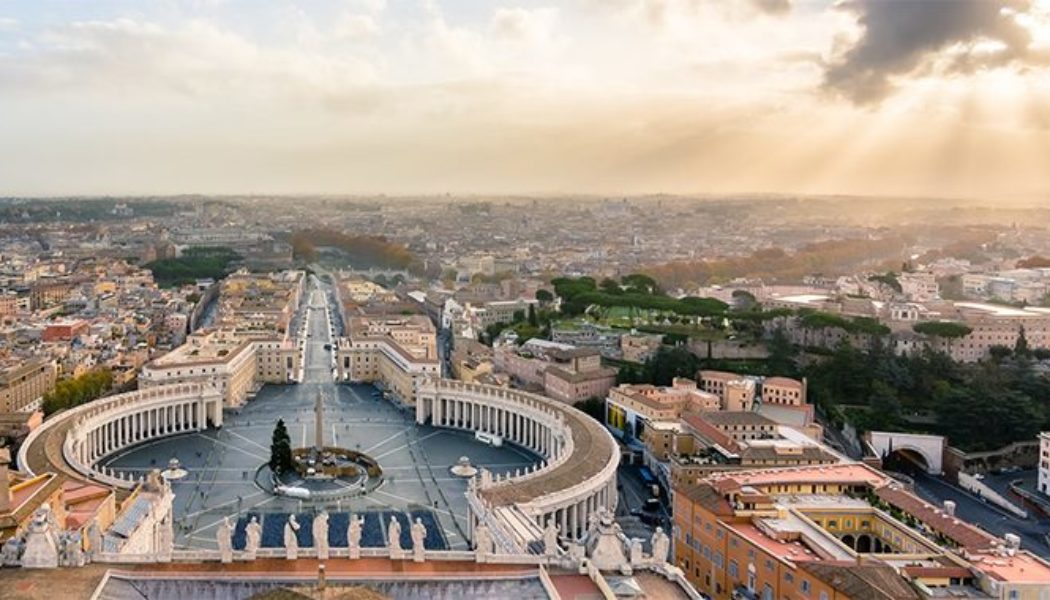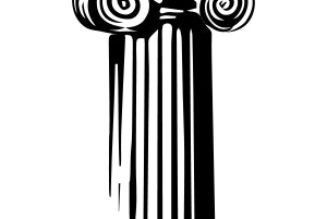
The claim implicit in the title of the DDF’s recently published Declaration, Dignitas Infinita (DI), has generated considerable controversy.
The matter of infinite dignity
Do human beings have infinite dignity? Certainly, those who through baptism receive a share in the divine nature, which is by definition infinite, also share in the infinite dignity of that nature. This is surely what Pope St. John Paul II had in mind when he said: “In Jesus Christ, God has shown us in an unsurpassable way how he loves every single person and confers on them infinite [unendliche] dignity through Christ.” John Paul was plainly affirming that God gives people that dignity through Jesus’ death and resurrection.
One might object to John Paul’s claim that Christ confers infinite dignity on every single person, because that would include those who are not baptized and even those who refuse his offer of salvation. But the pope no doubt means that Christ enables human beings to share in infinite dignity by offering them the superabundant gift of salvation, and confers infinite dignity when they accept salvation with living faith, since that is when they receive the gift of sharing in the divine nature itself.
Dignitas infinita does not teach that human dignity is infinite only in virtue of Christ’s raising human beings up to the dignity of sharing in the divine nature. It teaches rather that “every human person possesses an infinite dignity, inalienably grounded in his or her very being, which prevails in and beyond every circumstance, state, or situation the person may ever encounter … fully recognizable even by reason alone” (no. 1). However, since all creatures are contingent and thus finite, this teaching raises the question of how infinite dignity can be grounded in the very being of even the noblest of creatures. Elsewhere, DI says that “each human being . . . receives his or her dignity from the sole fact of being willed and loved by God” (no. 53). While the latter statement rightly recognizes that human dignity is a gift freely given by God, it still understands that gift to be intrinsic to human nature itself rather than freely bestowed on human beings. Neither passage mentions Jesus or suggests that the gift of infinite dignity presupposes the gift of sharing in the divine nature, which is infinitely above that of the creation of human nature itself.
The problem just noted presupposes a certain understanding of infinite dignity, namely, a dignity that has “no limit or end, boundless, endless, immeasurably great in extent, duration, degree” (New Oxford Shorter Dictionary, 1993). Understood in that way, infinite dignity applies to God because it corresponds to his being, but it would not apply to creatures, whose limits in space and time and in other respects are evident. But infinite might be applied to human beings in an analogical sense. For example, although human beings did not always exist, they might be said to be infinite inasmuch as they will never cease to exist, are capable of ever-greater fulfillment in a whole range of human goods, and are endowed with intellects capable of reflecting on all of creation and even on the Creator himself. Infinite also might be applied to human beings if it means that they are not reducible to any quantifiable measure. If human beings are said to be infinite in any of those ways (and perhaps in some other ways), then to say that they have infinite dignity would not raise the problem considered above. It is by no means clear that the document understands infinite in any of those ways, but for that very reason, we cannot exclude those interpretations.
In any case, DI does not entirely lack reference to the relevance of the redeeming work of Christ for human dignity. The Declaration points out early on that “all human beings—created by God and redeemed by Christ—must be recognized and treated with respect and love due to their inalienable dignity” (no. 2). A more precise affirmation of the Christological foundations of human dignity—namely, that human beings have infinite dignity (in the strong sense of infinite) only by sharing in the divine nature, which Christ’s salvific act makes possible—would have clarified the matter. Although DI does not provide such an affirmation, the letter of Presentation that introduces DI does cite the Christologically sound statement of John Paul II quoted and explicated above.f
Strengths of Dignitas Infinita
Unfortunately, the problem of ambiguity is not limited to DI’s treatment of dignity itself. We will discuss below additional ambiguous assertions that are open to conflicting interpretations, not all of which are sound. But we first wish to express our appreciation of some of the Declaration’s positive contributions.
In no. 24, DI teaches that personhood is not a property that human beings attain only when they become capable of exercising certain capacities, but is proper to every human being. By thus insisting that each member of the human species is a person, the Declaration makes the crucial point that it is never permissible to treat anyone as sub-personal.
DI’s treatment of capital punishment in no. 34 is also worthy of note, especially the text’s recognition that the inalienable dignity of every human person entails as a moral conclusion “the firm rejection of the death penalty.” Of course, to affirm the intrinsic wrongness of the death penalty, one must see that the Church’s previous teaching allowing it is not definitive (see Brugger’s Capital Punishment and the Roman Catholic Tradition, esp. pp. 141–63). [Editor’s note: For varying perspectives, see “Capital Punishment and the Catechism: A CWR Symposium”, August 18, 2018.]
We also appreciate DI’s unambiguous and very strong condemnation of abortion (no 47), which cites at length St. John Paul II’s powerful statement in his encyclical Evangelium Vitae. And we welcome the Declaration’s forceful condemnation of euthanasia and assisted suicide (52), especially because it comes at a time when those practices are increasingly being considered acceptable.
Other authors have pointed out other strengths of DI that are well worth noting but that we are unable to consider here. However, we do we wish to draw attention to one final strength that is especially noteworthy. No. 58 treats “the greatest possible difference that exists between living beings: sexual difference.” This point is critically important for understanding the central error of gender ideology—the rejection of the intrinsic complementary embodiment of human beings as male and female. Besides making a powerful philosophical point, the paragraph is also rhetorically powerful, speaking as it does of “the most marvelous of reciprocities,” which “becomes the source of that miracle that never ceases to surprise us: the arrival of new human beings in the world.”
Notwithstanding these positive elements, we must return to the problem of ambiguities in DI’s teaching. Recourse to a hermeneutic of ambiguity hinders the faithful not only from understanding the truths of divine revelation, which Church teaching is meant to elucidate, but also from allowing those truths to clearly direct their life of action.
To demonstrate the scope of the problem, we identify below seven more examples.
First Ambiguity: DI, no. 12: “Biblical Perspectives”
Commenting on the Great Judgment passage in Mt 25, which reads, “As you did it to one of the least of these my brethren, you did it to me,” DI ambiguously claims: “For Jesus, the good done to every human being, regardless of the ties of blood or religion, is the single criterion of judgment.”
This statement is problematic for two reasons. First, it might be taken to mean that other self-determining choices in the Christian life, such as to believe in Jesus and accept all the moral teachings of the Church, will not also, and necessarily, be criteria by which we will be judged.
Second, while love of neighbor obviously requires that we be prepared to help anyone in need, DI’s unquestioned assumption that Matthew’s words “the least of my brethren” refer to anyone in need is not defended by the majority of theologians. Craig S. Keener (in The Gospel of Matthew: A Socio-Rhetorical Commentary [Grand Rapids: Eerdmans, 2009], 605-606), says “that the ‘siblings’ [“brethren”] are here ‘disciples’ is the majority view in church history and among contemporary New Testament scholars.” He explains: “Elsewhere in Matthew, disciples are Jesus’ ‘brothers’ (12:50; 28:10; cf. also the ‘least’—5:19; 11:11; 18:3-6, 10-14); likewise, one unwittingly treats Jesus as one treats his representatives (10:40-42), who should be received with hospitality, food, and drink (10:8-13, 42). Imprisonment could refer to detention until trial before magistrates (10:18-19), and sickness to physical conditions stirred by the hardship of the mission (cf. Phil 2:27-30; perhaps Gal 4:14; 2 Tim 4:20). Being ‘poorly clothed’ appears in Paul’s lists of sufferings (Rom 8:35) including his most detailed extant apostolic peristasis catalogue (1 Cor 4:11) …. The king thus judges the nations based on how they have responded to the gospel of the kingdom already preached to them before the time of his kingdom (24:14; 28:19-20). True messengers of the gospel will successfully evangelize the world only if they can also embrace poverty and suffering for Christ’s name.”
We do not expect ordinary Catholics to be familiar with interpretive debates of this sort. But those who write magisterial documents surely should be familiar with them and at very least refrain from statements that, if taken at face value, would seem to settle currently valid theological debates prematurely.
Second Ambiguity, DI, no. 37: “The Drama of Poverty”
In a discussion of the unjust distribution of wealth in the contemporary world, DI states: “Moreover, if some people are born into a country or family where they have fewer opportunities to develop, we should acknowledge that this is contrary to their dignity which is the same dignity as that of those born into a wealthy family or country” (emphasis added).
It is of course true that the members of all families and countries have equal dignity. But is it really true that absolute parity with respect to their opportunities for development is a requisite of justice? DI’s statement goes well beyond what is required by the traditional Catholic social principle of the “universal destination of the world’s resources,” implying a kind of utopian conception of the distribution of goods. Surely not everything that results in a person having fewer opportunities is contrary to his or her dignity. Do not those with greater natural endowments—artistic genius, scientific brilliance, rhetorical acumen—have opportunities that those with lesser endowments do not? Moreover, has there ever been a community that has prevented every inequality in people’s access to opportunities?
If the moral critique behind this statement were translated into a rule of action for public authority, it would seem to justify excessive governmental interventions aimed at equalizing opportunities for all.
Third Ambiguity, DI nos. 38-39: “War”
DI states that war “denies human dignity”; “war attacks human dignity”; “no war is worth the loss of the life of even one human being”; “all wars, by the mere fact that they contradict human dignity, are ‘conflicts that will not solve problems but only increase them.’”
War is indeed a horror, but these statements problematically imply that there can be no instances of a justified war. Yet, in the same section, DI rightly affirms “the inalienable right to self-defense and the responsibility to protect those whose lives are threatened.” Taken at face value, the two sets of propositions are irreconcilable. The text continues in this same ambiguous vein, setting forth what appears to be a moral norm: “We can no longer think of war as a solution because its risks will probably always be greater than its supposed benefits.” Really? No longer? Are even defensive wars against manifestly aggressor nations morally unthinkable? Neither Vatican II (Gaudium et spes, no. 79, § 4), nor the Catechism of the Catholic Church (nos. 2308-2310) think so.
Although we are sympathetic with the view that the great majority of wars are not just wars for either side, and that many otherwise just wars are fought unjustly, it seems contrary to common sense, as it does to Church teaching, to say that war “probably” (?) is always wrong.
Fourth Ambiguity, DI 40: “The Travail of Migrants”
DI recognizes the terrible suffering that many migrants endure and issues a heartfelt plea that they be treated in accord with their human dignity.
However, the Declaration’s statements about migrancy are so sweeping that if implemented, they would require countries to have open borders. The statements fail to acknowledge the legitimate right and duty of sovereign nations to control their borders and regulate the flow of immigrants into their territory. They fail take into consideration both the importance of requiring that citizens be law abiding and the problem of incentivizing law breaking. They also relativize the distinction between migrants and refugees.
Merely being a migrant does not of itself obligate a country to receive the person. Other conditions must be met, but DI’s treatment evinces no awareness whatsoever that other conditions even exist.
Fifth Ambiguity, DI, no. 55: “Gender Theory”
We certainly agree that “every person, regardless of sexual orientation ought to be respected in his or her dignity and treated with consideration, while ‘every sign of unjust discrimination’ is to be carefully avoided, particularly any form of aggression and violence.” But emphasizing all this without an accompanying statement making it clear that homosexual acts (like all non-marital sex acts) are intrinsically wrong and that the LGBT movement has been a scourge on society is misleading. That scourge must be called out for what it is and resisted.
The bishops of Cameroon do precisely this in their statement replying to the Vatican’s recent Declaration permitting the blessing of homosexual couples, Fiducia Supplicans. (For an analysis of that document and the subsequent press release attempting to clarify its meaning, see Finnis, George, and Ryan, “More Confusion about Same-Sex Blessings.”) The Cameroonian bishops condemn the errors of LGBT ideology in language rarely heard in “polite” Western society. But their clarity, we submit, is an expression of true compassion, and we urge other shepherds of the Church not to let concern for human respect prevent them also from speaking forthrightly. They should supplement their calls for respect for the dignity of people who experience same-sex attractions with strong condemnations of the dangers, harms, and evils of the LGBT movement, such as the following:
In the history of peoples, the practice of homosexuality has never led to societal evolution, but is a clear sign of the imploding decadence of civilizations…. It is an alienation that seriously harms humanity because it is not based on any value proper to the human being.… Rejecting it is in no way being discriminative; it is a legitimate protection of the constant values of humanity in the face of a vice that has become the subject of a claim to a legal recognition and today, the subject of a blessing…. Since God does not want the death of the sinner, but his/her conversion to eternal life, we recommend those who are inclined to homosexuality to the prayers and compassion of the Church, with a view to their radical conversion. We also invite them to turn away from their mentality of victimization in which they take pleasure in considering themselves as “victims”, “weak”, “minorities”; in order to seize the opportunity for conversion that God gives them in the many exhortations of His Word. (Declaration of the Bishops of Camaroon, Dec. 21, 2023)
Sixth Ambiguity, DI, no. 60: “Sex Change”
The document’s willingness to morally criticize “sex change” interventions is welcome, but the following formulation of that criticism is problematic: “Any sex-change intervention, as a rule, risks threatening the unique dignity the person has received from the moment of conception.”
Rather than clearly condemning all freely chosen efforts aimed at altering one’s body to bring it into conformity with the opposite sex, we are given this ambiguously formulated norm. Just what do “as a rule,” “risks,” and “threatening” mean? Since the phrase “as a rule” usually indicates a principle that applies in most cases, but admits of exceptions, one wonders whether DI means to leave the door open to exceptions. And saying that such interventions “risk threatening” human dignity implies there’s uncertainty as to whether this is always the case. Are they merely a threat to or a clear violation of human dignity? Just when is a “sex change” intervention not contrary to human dignity? The ambiguities leave open the possibility that some interventions aimed at altering one’s biological sex may be justifiable.
Here and elsewhere, the criticism would have been much clearer had it used precise Catholic concepts such as choice and intention, means and ends, to specify the morality of human action and to exclude some kinds of acts—in this case, the choice to reject one’s biological sex—as intrinsically wrong.
Seventh Ambiguity, DI 65: “Conclusion”
In its closing remarks, the document, quoting Pope Francis’s Encyclical Letter Fratelli Tutti (2020), states: “we should remember that ‘appearances notwithstanding, every person is immensely holy and deserves our love and dedication.’”
It is certainly true that every person is deserving of love and dedication, but unless holy is understood differently from the way it is usually understood, the statement “every person is immensely holy” is false. Indeed, if the statement were taken at face value and according to the usual meaning of “holy,” the affirmation that everyone is holy could easily lead people to conclude that no one ends in hell. However, it is obvious that many people are not holy in the usual sense, and Pope Francis himself has made statements indicating that he realizes this. For example, he has warned mafia bosses: “Convert, there is still time, so that you don’t end up in hell. That is what awaits you if you continue on this path.” He obviously does not think that such people are holy in the usual sense. So, one should not assume that in saying “every person is immensely holy,” DI means that everyone is virtuous and on the road to salvation. It seems to mean that the gift of human nature is a sacred gift, and that the gift remains sacred no matter what evil a person may do. But an explanation is needed lest people be tempted to embrace universalism.
In conclusion, we wish to reiterate that DI’s many positive elements are heartening. Nevertheless, as we have seen, the Declaration is peppered with ambiguities, and unless they are properly clarified, we believe they will prove to be impediments to faithful Christian living and overshadow DI’s genuine contributions.
If you value the news and views Catholic World Report provides, please consider donating to support our efforts. Your contribution will help us continue to make CWR available to all readers worldwide for free, without a subscription. Thank you for your generosity!
Click here for more information on donating to CWR. Click here to sign up for our newsletter.









